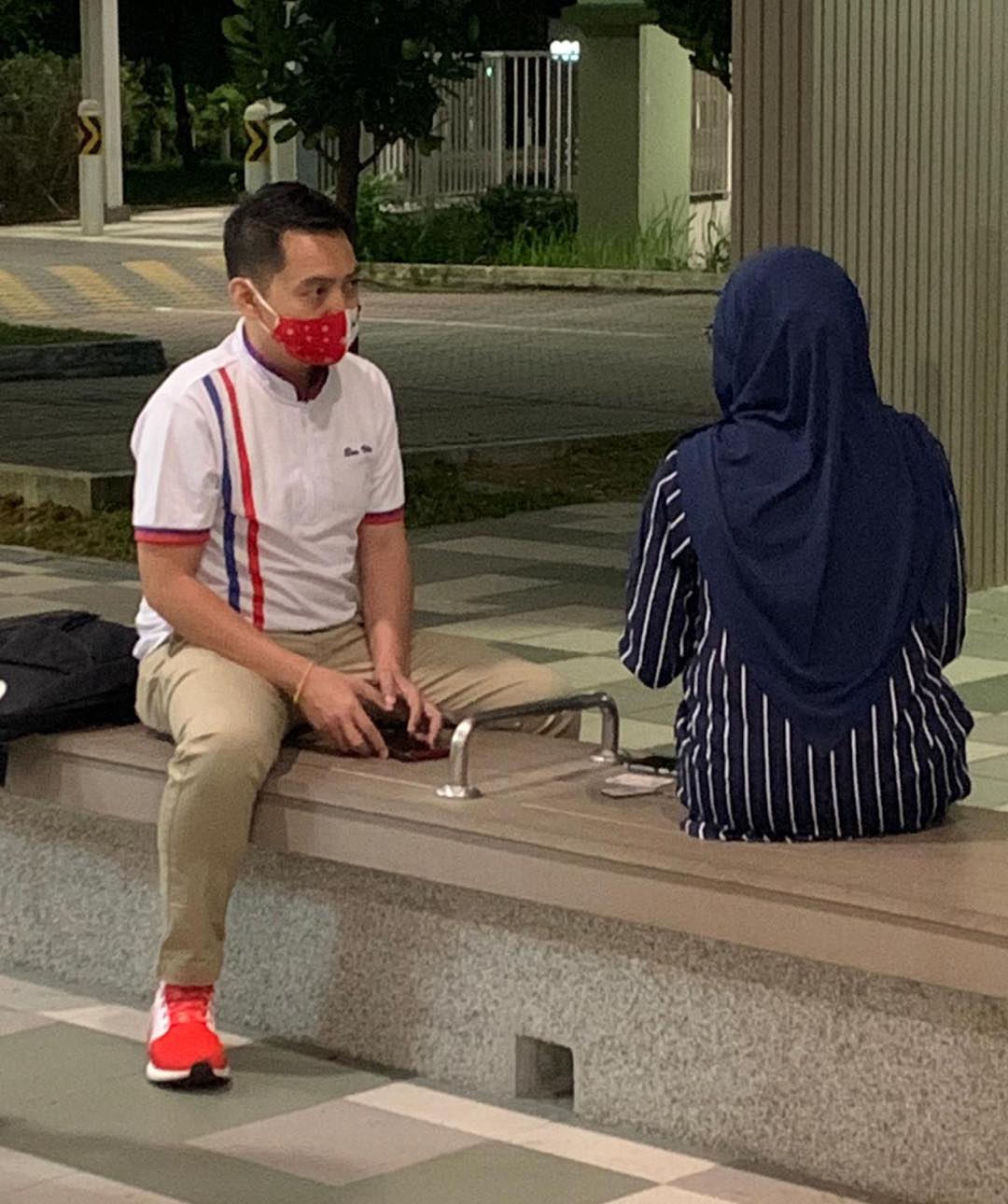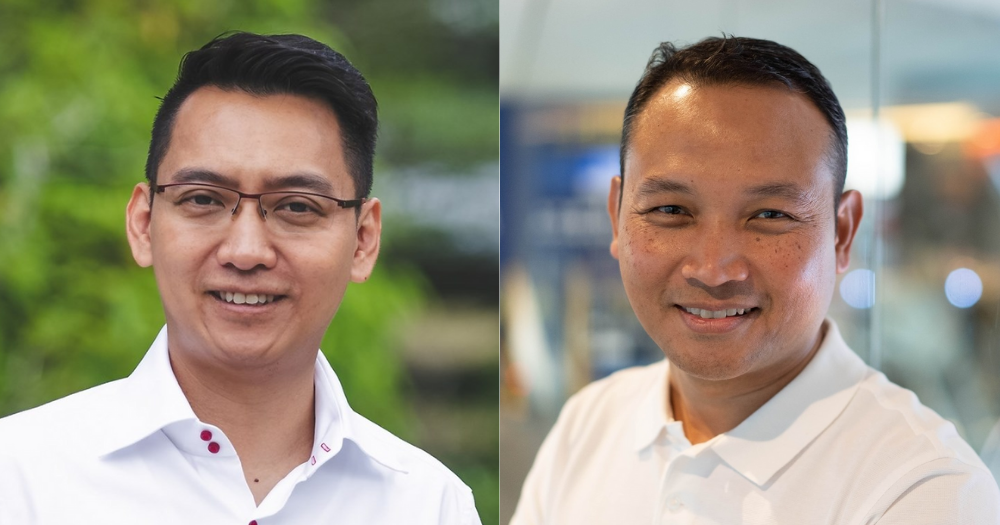Meet Chua Chu Kang GRC MP Don Wee, 43, and Marine Parade GRC MP Fahmi Aliman, 48.
Both come from vastly different professional backgrounds — Wee is a banker while Fahmi served in the Singapore Armed Forces (SAF) for 26 years.
But as first-time MPs, they have somehow found common ground with a particular topic that is close to their hearts: mental health.
Given that both their maiden speeches discussed mental health issues in Singapore, we sat down with both Wee and Fahmi to find out more about why and how they developed a passion for this issue.
So, why mental health?
In 2019, Singapore recorded a total of 400 suicide cases, according to data published by Samaritans of Singapore. The issue of mental health is one that has been discussed more in recent years, but it continues to face stigma in many segments of society.
Wee explains that his first interactions with mental health occurred when he was appointed onto the Institute of Mental Health's (IMH) Visitors' Board.
When he received the invitation from IMH to join the board, he didn't have any experience dealing with mental health patients. Nonetheless, he thought it would be a good opportunity.
As part of his role, he and the board conducted independent assessments of patients detained in IMH and Changi Prison.
The board's assessment was used to supplement psychiatrists' evaluations, in order to determine whether the patient could be discharged.
He recognises that his work with IMH over the past couple of years has significantly changed his perception of mental health patients.
"It has actually educated me a lot. Initially, before this, I might have thought that some of them might be 'acting', but actually, after reviewing some of these cases, I started to empathise with them. And very often, it's beyond their control."
For Fahmi, his awareness about the importance of mental health came from his experience in the military. During his years in the SAF where he was a colonel, he met a number of Full-time National Servicemen (NSFs).
 Photo via Young NTUC website.
Photo via Young NTUC website.
He discovered that there were some who seemed to be in very distressing situations. In addition to dealing with the stress of NS, some also had tough home situations, which were compounded for some by financial struggles. He noticed that a number of the young men were dealing with depression, anxiety, and compulsive disorders.
"All of this actually makes me wonder, is there any help that we can give to the youth?" Fahmi mused.
One young man, in particular, wasn't concentrating during his training and had some adjustment issues. After speaking to him, Fahmi discovered that the man did not have a strong support at home. While other NS men returned home to their families on the weekends after booking out, he went back to the Boys' Home.
Fahmi shares that he worked hard to ensure that additional support was provided for the young man.
"So what I did was that I talked to my guys, to all my commanders in charge, and I told them to make sure that we have this safety net or this family within the unit, so that he can talk. So that he can actually raise his concerns and highlight some issues."
Fahmi took him under his wing and ensured that he had a positive NS experience. Even years later, the two of them still meet up — most recently just a few months ago — and Fahmi says that the man is doing well, and has since begun working.
Providing support to mental health patients through financial stability
For Wee, the issue of mental health has come up in his work with his Chua Chu Kang constituents, although it is often not their most immediate concern.
Most of Wee's constituents come to him seeking financial assistance. Rather than just address their financial issues, however, he asks them a set of questions to try to dig deeper and get at the underlying problems.
 Wee at a Meet the People session. Photo via Wee's Facebook page.
Wee at a Meet the People session. Photo via Wee's Facebook page.
And through those questions, he has noticed a correlation: "Financial distress is often intertwined with mental stress," he said in his maiden speech in Parliament on Aug. 31.
He explains that, because of the stigma against mental illness, it has a domino effect on mental health patients' livelihoods:
"We realise that society can't really accept them, and as a result, they can't work. So, when they can't work, they won't have the confidence.
They will not want to spend money unnecessarily to consult a doctor, even though they can actually receive subsidised treatment."
Wee shares that he has seen many cases that have gone into a "downward spiral" because of this.
Thus, his main focus for addressing mental health issues is by helping individuals with mental illness establish financial stability, by creating paths for them to become gainfully employed.
He proposes doing so by encouraging or mandating employers to hire mental health patients, so that they are able to afford necessary treatment.
After all, he says:
"The best welfare the government can give to Singaporeans is actually jobs or education. It's not just the money but most importantly, it gives them the dignity and the confidence to live their life."
Wee says that the first idea he plans to push is to revise hiring frameworks to give incentives for employers — such as a tax grant, a tax incentive, or an additional foreign worker quota — to employ more mental health patients, in order to increase the financial ability of said patients.
Creating "safe spaces"
In his maiden speech in Parliament on Sep. 1, Fahmi spoke about the need to create "safe spaces for youths, parents, teachers, and school counsellors to talk about mental health issues in a safe and supportive way".
These "safe spaces", should ideally be physical spaces in schools and workplaces, he says.
These should be places where individuals can seek support and build trust and confidence between themselves and the person administering the support.
Fahmi also wants to encourage young people to develop their own coping mechanisms to protect their mental health.
He says that he takes care of his mental health by running every day and allocating himself regular "me-time".
"I will try to run every day. I need to run first before I go to work because... it's just my body lah. If I don't go and run, that day I'll be very moody. So my run helps me balance things out."
A big fan of nature, Fahmi also enjoys spending his "me-time" cycling, trekking, and walking.
He emphasises that it is important for people to figure out what kinds of coping mechanisms they need for taking care of their mental health, and that it may be different for each person.
Wee also shares how he takes care of his mental health: He exercises every alternate day, and he makes sure to spend time playing PlayStation 4 with his youngest son, who is studying for PSLE this year.
His favourite games? "FIFA 20 and NBA 20," he says, and laughs as he admits that his son is the stronger player.
Eliminating the stigma against mental illness from a young age
While mental illness has been more readily discussed in recent years, there still continues to exist a stigma around it.
Both Fahmi and Wee emphasise the importance of de-stigmatising mental health issues.
Wee says:
"We should not stigmatise [individuals with mental illness], because mental illness is just like any other chronic disease. If we're not stigmatising someone who is suffering from cancer, we should not be doing the same for someone who is suffering from mental illness."
Fahmi echoed a similar point in his speech in Parliament, about how the stigma against mental health makes it difficult to have conversations about it:
"As a society, it does us no favours to continue to tiptoe around mental health issues, as they may have life-altering consequences. Instead, we should consider mental health and physical health as equally important, and in tandem with one another."
But how do we as a society tackle something as huge as eliminating the stigma surrounding mental health?
Fahmi and Wee stress the importance of starting young, by educating primary school children about mental health issues.
Wee plans to file parliamentary questions about introducing mental health topics in primary schools.
"Because once we can nip the problem in the bud, then that's when, as they grew up, they will be more empathetic towards people with mental health conditions," says Wee.
Fahmi agrees, pointing out how our response towards mental health has to change as we become more enlightened.
"Just reflecting back at last time, when we were young, we were naughty that time. When we would see youth who were not stable, we would tend to mock them — we laugh, make fun of that.
Now, with a better understanding of mental health, instead of mocking or laughing at them, we should approach and tell them what help we can give to him."
Destigmatising seeking help
Sharing a story about a young woman who came to him at a Meet-the-People session, Fahmi explains why it's important to address the fear of seeking help when it comes to addressing mental health issues.
The woman's mother — the sole breadwinner of the family — had relapsed and was sent to IMH, and the young woman was left to take care of her elderly grandmother. The young woman was under immense stress, and said that she did not know where else she could go for help.
Despite doing very well in school and earning a bursary for her studies, the woman was worried that her bursary might be affected if she sought mental health help.
"The fear prevents them from taking the first step of seeking help, because they don't want to be branded, and they don't want to lose the opportunity, lah."
Fortunately, changes are happening in Singapore to decrease the stigmatisation of mental illness, like in the workplace, for example.
In January 2020, the Tripartite Alliance for Fair and Progressive Employment Practices (TAFEP) updated its guidelines to advise employers that they shouldn't ask job applicants to declare personal information such as mental health condition, "unless there is a job related requirement".
It also stated that employers should remove all declarations on mental health conditions from job application forms.
Looking forward over the next five years
Fahmi believes that change in the mental health sphere will come from having more youths' voices, and that he is looking forward to initiatives such as the Youth Mental Well-being Network, which was announced in February 2020 by then-Minister for Social and Family Development Desmond Lee.
"Once we have this conversation at the youth level — a very targeted conversation — I think at the policy level, we'll be able to make some tweaks and make some changes."
Fahmi's hope is that, over the next five years, Singapore can aim toward having no more suicides, similar to the goal of having zero workplace accidents on construction sites.
This can be done through early detection, assistance provided upstream, and better training, he says.
Wee hopes that there will be an attitude and mindset change, where people will treat mental health patients with the same empathy they show to patients of chronic illnesses.
This is his advice for anyone struggling with mental health issues:
"When you have problems, you need to share with your friends or seek help, and to not be concerned that you'll be judged.
There are hotlines out there, whereby you can just call them in the middle of the night and share your sorrows. So this is the first step for what you do if you suspect you are undergoing some mental stress."
We deliver more stories to you on LinkedIn
Top photo via Wee's and Fahmi's Facebook pages. Quotes have been edited for clarity.
If you like what you read, follow us on Facebook, Instagram, Twitter and Telegram to get the latest updates.
